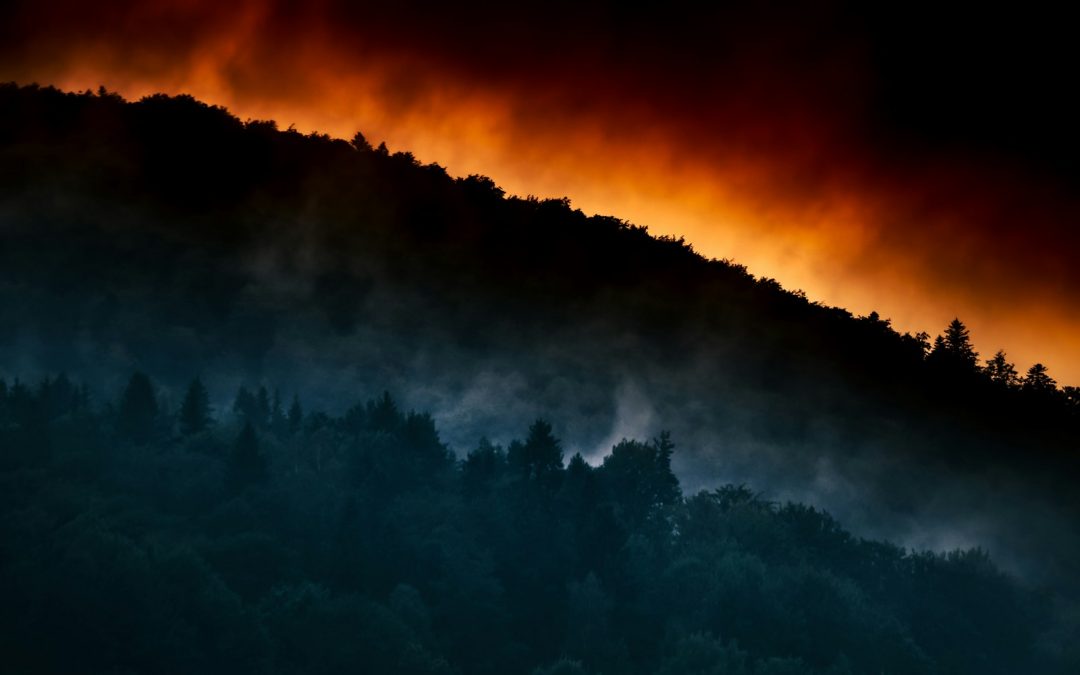
How Can Anything Be More Than The Sum Of Its Parts?
February 27, 2024
Simon Cross: Looking for what is Becoming
March 27, 2024In 2006 on the wonderful island of Gotland of the Swedish coast, we (Alliance of Religions and Conservation, ARC) held a major meeting between the largest forest-owning faiths (Baha’I, Buddhist, Christian, Hindu, Muslim and Shinto) and the key forest organisations such as FSC (Forest Stewardship Council). ARC had pioneered a forest protection programme with the Maronite Church of Lebanon that had helped save and protect the last remaining old oak forests in the Eastern Mediterranean. As the meeting drew to a close, they suggested that we create ‘Faith Protected Forests’ around the world. Suddenly the Shinto delegation literally exclaimed in horror! We asked them what was the matter. They replied: “We don’t protect the forests! They protect us.”
As a theologian who has worked in the environmental world for nearly fifty years, I am troubled by the naivety of much Christian environmental thinking and how this impacts action, then misshapes work with other faiths and the secular environmental world. Two key issues concern me. Firstly, the word ‘stewardship’ and secondly the human arrogance that sees us as the reason for Creation.
‘Stewardship’ is a purely managerial word. Stewards manage estates, companies or production on behalf of someone else who tells them what to do. It is not a creative word. It is not a companionship word. It not about equality and it is not about decision making. It is a servile word, where someone is given control of inanimate objects to be evaluated, priced, packed and managed. Good ‘stewardship’ means ensuring that the needs of the owner are assured, with nature as a kind of warehouse where things never run out. It is impersonal.
It comes from a primarily Protestant context; is not a Catholic or Orthodox term, and so creates real theological barriers to understanding.
The thinking set out in the first Orthodox document on the environment, ‘Orthodoxy and the Ecological Crisis’, expresses our relationship thus: ‘Just as the priest at the Eucharist offers the fullness of creation and receives it back as the blessing of Grace in the form of the consecrated bread and wine, to share with others, so we must be the channel through which God’s grace and deliverance is shared with all creation. The human being is simply yet gloriously the means for the expression of creation in its fullness and the coming of God’s deliverance for all creation.’ This is the language of relationship, of sacrament, of sacredness and of humility not management.
Likewise, in ‘Laudato Si’, Pope Francis dedicates a whole section to what he terms ‘Educating for the Covenant Between Humanity and the Environment’. The Covenant – echoing the Biblical Covenant between Noah and God – includes, ‘…every living creature, in a word all living things” (Genesis 9:15) – and the promise is that God will never destroy life on earth again.
We need to get away from the language of stewardship and management and return to being part of nature; not apart, and managing, almost exclusively for our own benefit. Being ‘apart’ is problematic because it leaves us with no visceral relationship with the rest of God’s creation. We set ourselves up as little gods.
We need to rediscover a personal, emotional, engaged relationship with the rest of life on earth – the sacramental and sacred relationship between ourselves and God the creator and the rest of creation. We are part of this wonderful creation, not apart from it. It is this fault-line of separation that is at the root of the bad decisions that have landed us in the mess we are in now!
This brings me to my second theme – the need for humility. I have heard numerous sermons in which the preacher claims (falsely) that God’s creation was all good until humanity came long. This is a misreading of Genesis that Judaism has never made. There is one day on which God is agnostic about what God has created. But it is actually the Second Day. Read Genesis 1: 6 – 8, the creation of the waters above and the waters below. God says nothing at the end of that day. Judaism asks why and gives the following answer. That day the waters were divided by the angels at God’s Command. But as they got ready to return to God and report on the day’s work, the waters below started to complain. ‘Why,’ they asked, ‘are the waters above, and we are down here?’ To which the waters above smiled and said, ‘well obviously we are better than you’, and thus a huge row broke out in the universe. The angels tried to calm it down and failed. They return to God and report how creation is all going wrong. Finally, the Talmud says, God simply said, ‘It will be!’. That day pride, foolishness, argument, violence and discord entered the universe. Yet, at the end of the six days God says it is all good, which means that even the problems that entered in Day Two are part of creation’s very being. It has never been a perfect creation – and the story of evolution spells that out time and time again even for those of us who believe in a loving creator.
It is important in ecological terms to see creation as a work in progress. We are asked to help, but this is not because we are the reason it was created. Why on earth do we think that the whole of Creation, the whole of Evolution – those two great stories – have taken place just so we can live comfortably? We are probably going to be a short-lived species. The trilobites were around for 250 million years and then went extinct. The dinosaurs for 100 million and then died out. I don’t believe we will make it to the next million! Yet we behave as if the world is designed just for us. We believe that if we tinker with the system, we can get it to do what WE want. Nature, we seem to think, only needs a series of COPs to be told how it will all get restored, and we can get back to being ok on our planet. The Gaia hypothesis blows a massive hole in such anthropocentric thinking. The planet is not here to do our will. It is even questionable, given the Talmudic reading of Genesis, that it is here to do only the Will of God!
So where does that leave us, those of us from the Christian traditions who want to be part of a living, liveable world for all life on earth? We need to look for another image and one which doesn’t just give us all the benefits if we get it right. We may have to realise that this is going to be costly for us at every level – to bear witness to the servant model that we know from Christ – who as Paul says in Philippians 2: 6 – 8 humbled himself, emptied himself of his equality with God and took the form of a servant. He did this, as Paul reminds us in Colossians 1:19-20, as ‘the first-born from the dead…. And through him to reconcile all things to him, everything in heaven and everything on earth…’
We need a focus on the servant Christ, the good shepherd who is willing to lay down his life for his flock. The Orthodox have put it beautifully. For the planet to thrive, we will have to make sacrifices: ‘We must return to a proper relationship with the Creator AND the creation. This may mean that just as a shepherd will in times of greatest hazard, lay down his life for his flock, so human beings may need to forgo part of their wants and needs in order that the survival of the natural world can be assured. This is a new situation – a new challenge. It calls for humanity to bear some of the pain of the creation as well as enjoy and celebrate it. It calls first and foremost for repentance – but of an order not previously understood by many.’ (Orthodoxy and the Ecological Crisis. Published by the Ecumenical Patriarchate, and WWF 1990)
This is a starting point for us Christians to explore – and with one final caveat. We need to allow for the insights from other faiths to challenge us. Across our faiths there is a wonderful richness of differences. If I have learned anything from working with ecologists, it is that diversity is essential for life to flourish. And if that is how God has made the physical world, I think God also likes diversity in the world of faiths. When one belief system rules – religious or ideological or economic, life is diminished.
Martin Palmer
Martin Palmer is a theologian, Sinologist, author and international specialist on all major faiths and religious traditions and cultures. He is the Founding President of FaithInvest, an international not-for-profit membership association for religious groups and faith-based institutional investors. FaithInvest grew out of the Alliance of Religions and Conservation (ARC) of which Palmer was Secretary General.




